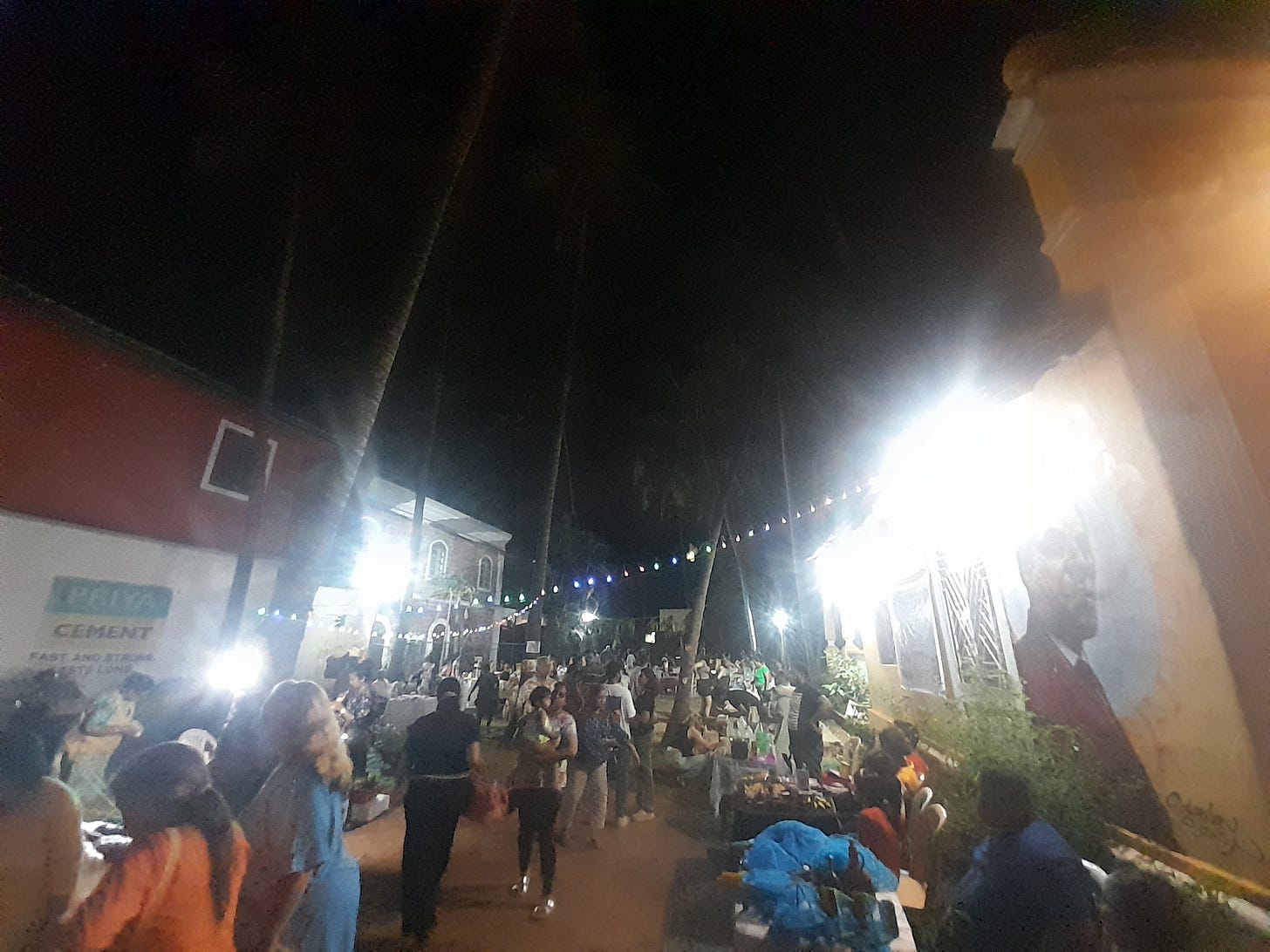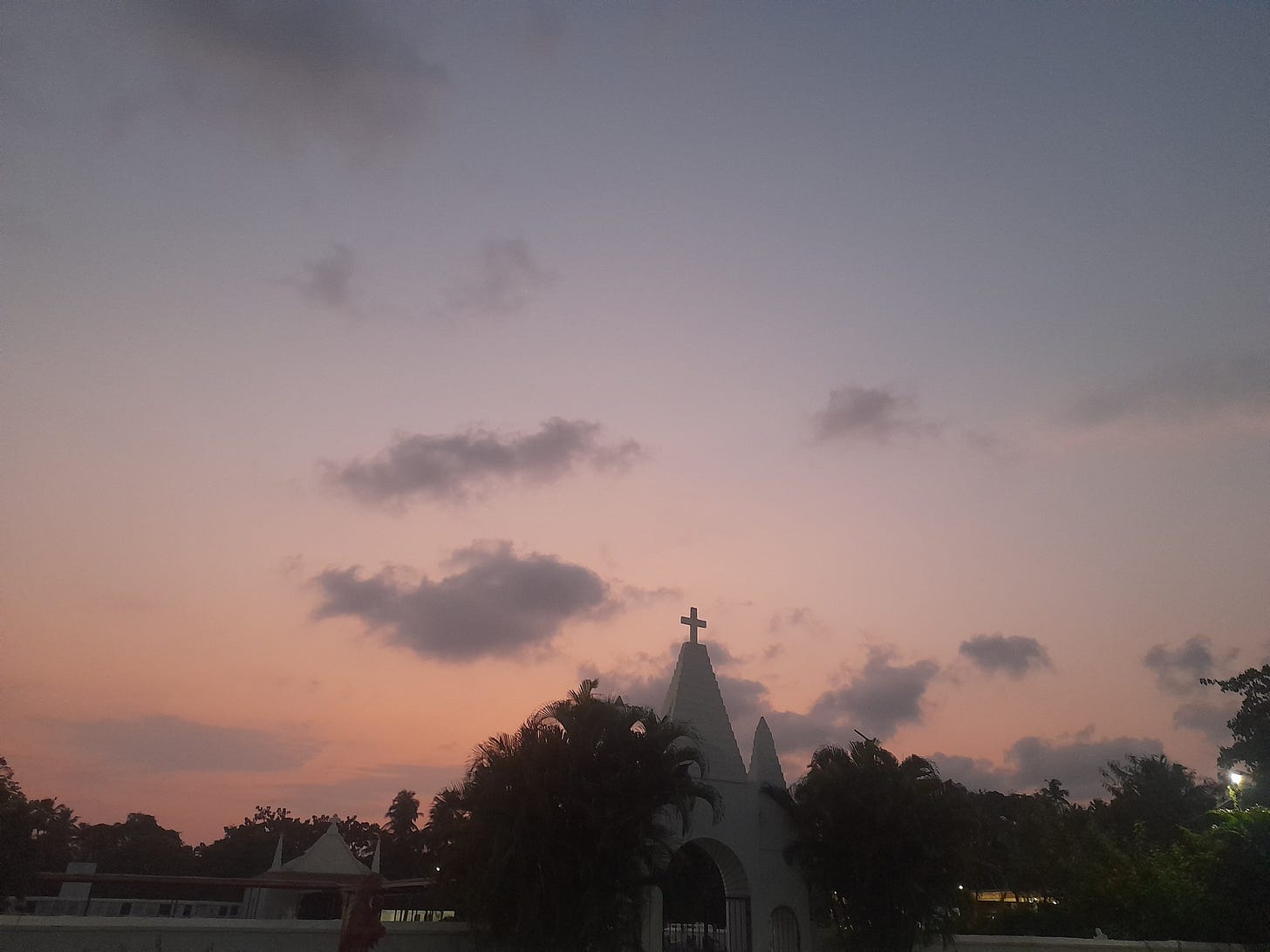Saligao Summer: On Fitting in and Acceptance
My long conversations with residents of this idyllic state have been an eye-opener.
I met R in December, when we were both at a curated lunch program in an old Goan home. Since he’s a gentleman with impeccable manners, I liked him almost instantly. When he found out I was back in Goa, he came to Saligao for an evening walk and a visit to the Tuesday market.
As I greeted people who were no longer strangers at the market, including someone who was with me on the Damodar Mauzo walk and a couple of my new basketball buddies, R told me that I was quite lucky to be accepted as one of the guys.
Hailing from Punjab, he had settled down in Goa in 2008 and was happy here but said he had very few local friends.
This is obviously neither an introvert nor someone with a repulsive personality, so I asked him why this was the case. R said his physical features (no, he is not a turbaned Sikh) gave him away as someone from the north of India and he faced covert hostility. “When I met you the first time, I thought you were Goan,” he said, “but then again there is a particular look that people from the West coast of India have from Maharashtra to Kerala and you fit that description.”
What he meant to suggest was that I was treated well by people here since I looked like ‘boy next door.’ He said the traces of an American accent I had from my childhood also could have made me endearing for Goans who would assume I was a non-resident with roots here.
Quite frankly, many people who are privileged have no idea of their own privilege. This is a global phenomenon.
The way I looked at it, people have always been kind to me and accepting of me in Goa since I have shown an overt desire to mingle and embrace anything local. But then again, so has R. Both of our experiences are very anecdotal.
My father lived here in the 1960s, just a few years after Goa became a part of the Republic of India, and he, despite being a vegetarian teetotaller, had the time of his life here.
After my conversation with R, I took this topic up with a couple of people who were born and raised in Goa and what they told surprised me. J said many Goan Catholics tended to be extremely status and caste conscious. “They want to know your surname and about your family and village, so that they can see where to place you in the hierarchy,” she said.
Her words reminded me of an experience of one of my French teachers, who is a Goan. When she was looking to find a life partner for her son, some Catholic families wanted to know if they were Brahmins! She refused to answer that and told them to go to a Hindu temple and find a priest for their daughters!
Another Goan friend told me about the strong networks that the elite Hindus and Catholics of the state had and how they zealously guarded their privileges and kept those from marginalized backgrounds out of their circles.
All this was on my mind when playing basketball at the Saligao Institute court this morning. I was introduced to an elderly gentleman, who has a broad smile when he met me. “You play so well,” he said. “Thank you, Sir,” I replied. He then asked me my name. When I said Ajay, he asked, “Ajay What.” Playing the fool, I told the pensioner that I didn’t understand what he meant by “what.” He then asked me my surname and I told him that many South Indians don’t have surnames.
The man smiled and said, “Oh, you’re a South Indian. I thought you were Goan!” I knew exactly where this man was going when he asked “Ajay What.”
Was J right about her assessment of Goan society? She definitely knows her home better than I do. But then again, for the young men I play basketball with, I am just a guy with a good jump shot and post-up game…They never asked anything about my background nor did they seem to care!
One can only hope that the in-grained prejudices of the past go away and that both the marginalized and the wealthy folks like R can find peace and acceptance here in this beautiful piece of earth.





Next one, say My name is Kamalakov, Agent Kamalakov and speak in Russian.
This asking for the surname is also a thing among some dominant caste people, older ones again. Even in Kerala. There are some viral reels made by people there speaking out about this question older people ask and a very popular clip from a Nevin Pauly movie where the character answers when asked: I don’t have a tail behind my name. I have one before my name and it’s sakhaav.
It’s very difficult for some to have a social interaction without placing a person on their caste scale and hierarchy.